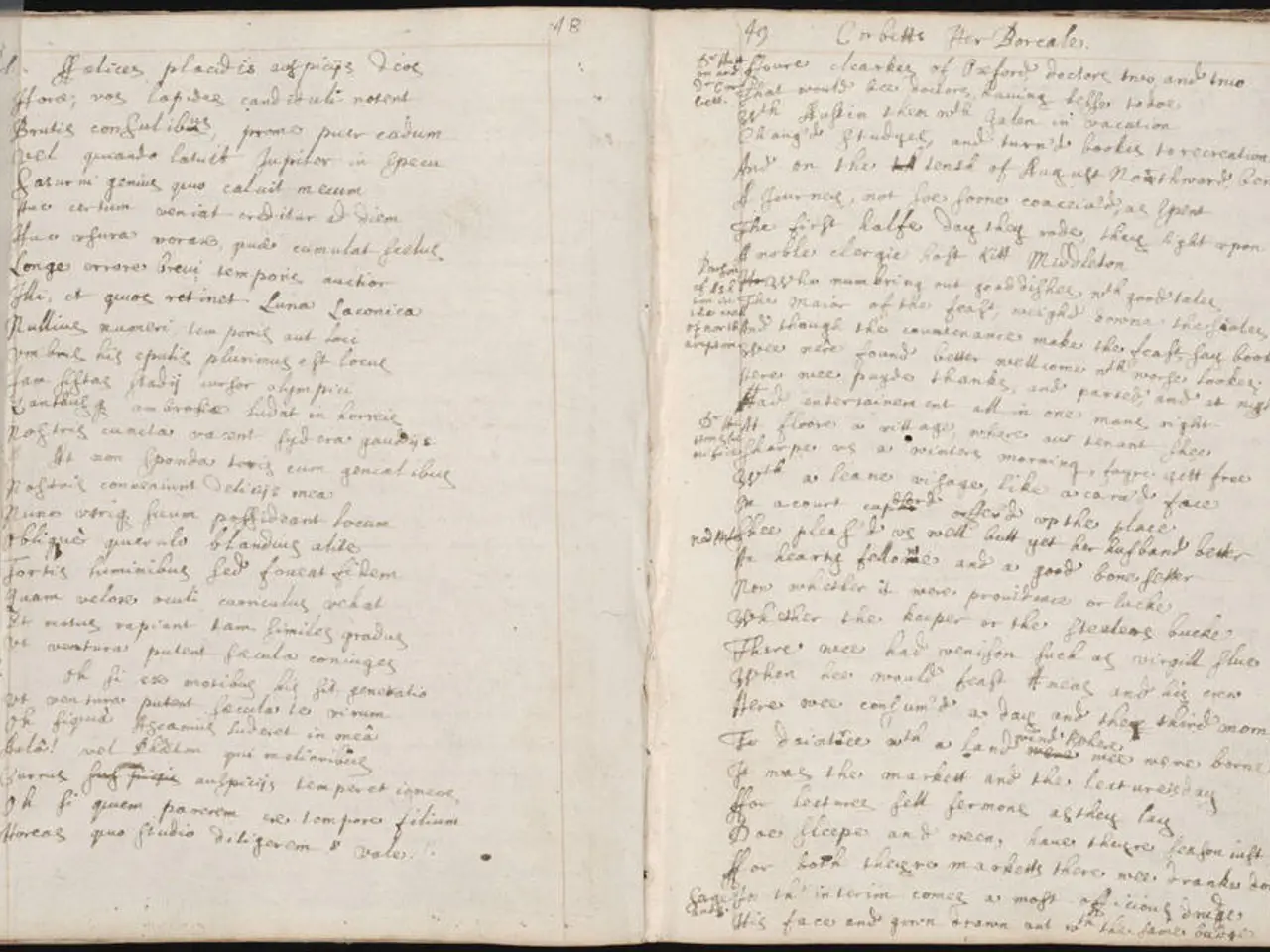Examining Their Impact: 6 German Intellectuals of the Enlightenment Era
The German Enlightenment, a period of intellectual and cultural ferment in the late 18th and early 19th centuries, saw some of the most influential thinkers in history make their mark. Among them were Immanuel Kant, Johann Gottfried Herder, Georg Wilhelm Friedrich Hegel, and Ludwig Feuerbach.
Immanuel Kant is often regarded as the central figure of the German Enlightenment. In his 1784 essay Was ist Aufklärung? ("What is Enlightenment?"), Kant urged individuals to "sapere aude" ("dare to know"), advocating for the use of reason and autonomy in private thought, which laid the groundwork for modern epistemology, ethics, and autonomy in moral philosophy.
Johann Gottfried Herder, another key figure, contributed a distinctive Romantic perspective within the Enlightenment. He emphasised the importance of Volksgeist—the unique spirit of a people expressed through folk culture, language, and tradition. Herder helped establish hermeneutics, linguistics, anthropology, and a secular philosophy of history, influencing thinkers such as Hegel and Nietzsche.
Georg Wilhelm Friedrich Hegel was a major figure in German Idealism. His works, particularly The Phenomenology of Spirit and The Science of Logic, addressed profound questions about reality, knowledge, history, and freedom. Hegel's dialectical method and his concept of history as the unfolding of reason influenced numerous philosophical disciplines and political theory.
Ludwig Feuerbach, a Young Hegelian philosopher, critiqued religion by arguing in The Essence of Christianity that concepts of God reflect human nature projected outward. This materialist and atheist critique helped bridge Hegelian philosophy and Marxism, influencing modern secular and humanist thought.
These thinkers expanded concepts of reason, culture, history, religion, and human freedom, deeply impacting epistemology, ethics, anthropology, and political theory in Western and global thought. Friedrich Nietzsche, although slightly later than the Enlightenment proper, also drew heavily on and reacted to these traditions and is notable as one of the most influential German philosophers in modern thought.
Hegel's philosophy laid the groundwork for later movements such as existentialism, Marxism, and critical theory. Herder argued that each culture has its own unique value and that understanding a culture requires understanding its language, literature, and traditions. Hegel's dialectical method has influenced a wide range of fields, from political theory to existential philosophy. Herder's emphasis on the importance of culture and language continues to influence contemporary debates on identity and multiculturalism.
Kant's most famous contribution is his "Critique of Pure Reason" (1781), where he explored the limitations of human knowledge and the conditions for the possibility of experience. Lessing is often credited with helping to establish modern German literature. Gotthold Ephraim Lessing was a playwright, philosopher, and critic who played a pivotal role in the German Enlightenment.
Goethe's ideas on literature and culture have shaped modern literary theory, while Lessing's advocacy for religious tolerance remains relevant in discussions on human rights and freedom of expression. Herder's ideas have had a lasting impact on the humanities, particularly in areas like cultural studies, linguistics, and philosophy of history. Hegel's ideas on history, reality, and the state have influenced a wide range of fields, from political theory to theology.
Together, these thinkers laid the intellectual foundations for many of the ideas that continue to shape modern philosophy, literature, and social theory. Their work, though often complex, continues to resonate and inspire scholars and thinkers today.
The ideas of Immanuel Kant, particularly his advocacy for the use of reason and autonomy, have significantly contributed to the field of education-and-self-development.
Johann Gottfried Herder's emphasis on the importance of understanding a culture's unique value, expressed through its language, literature, and traditions, has been influential in psychology, shaping contemporary debates on identity and multiculturalism.




